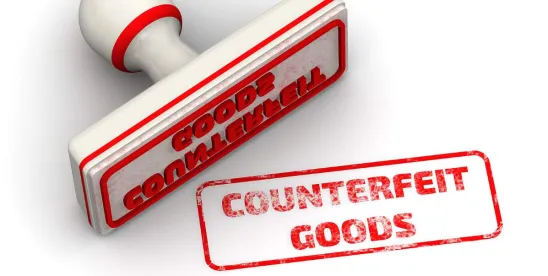Dearest Gentle Reader, it seems that the scandalous allure of counterfeit goods has infiltrated our esteemed society with alarming frequency. Behind the shimmering facade of the finest of marketplaces, whispers abound of false jewels, imitation gowns, and even counterfeit carriages parading as the genuine article. One cannot help but ponder the lengths some would go to deceive, tarnishing the honor of reputable brands and defrauding unsuspecting patrons who seek nothing more than authenticity in their purchases.
“Bridgerton,” a popular Netflix series based on Julia Quinn’s novels, is set in Regency-era London and follows the lives, romances, and scandals of the esteemed Bridgerton family and their peers in high society. The show’s narrative is propelled in part by a fictional publication, the “Society Papers,” a social gossip column authored under the nom de plume, “Lady Whistledown.” Part two of Season 3 of the show, released last week, was full of its usual drama and romance, but also touched on what happens when a fake Lady Whistledown releases a counterfeit version of the Society Papers—the people of Mayfair were forced to compare the dueling versions of the gossip column to determine which was authentic and which was the imposter.
Here in the U.S., the Lanham Act defies “counterfeit” to mean a “spurious mark which is identical with, or substantially indistinguishable from, a registered trademark.” 15 U.S.C. § 1127. As in this season of Bridgerton, most trademark counterfeiting cases involve a knockoff product that is made to imitate the genuine product, for purposes of deceiving consumers into obtaining what they believe is the real thing. Anti-counterfeiting laws are designed to combat the production, distribution, and sale of fake products that mimic genuine brands, ranging from luxury goods and electronics to pharmaceuticals and automotive parts.
Unlike Regency-era London, today’s access to online marketplaces increases opportunity for would-be counterfeiters to release fake goods to the public. Brand owners (like the true Lady Whistledown) can help combat counterfeiting by:
- Educating consumers: Depending on the product, it may be appropriate to include on your website information about how to distinguish a real product from a knockoff. Brand owners can also display a list of authorized retailers on their websites for consumers to review. Since consumers are more likely to come into contact with potential counterfeit goods than brand owners, consider publicizing a dedicated contact method where consumers can easily alert you of suspected counterfeiting activity or knockoffs. Brand owners can also deploy advanced anti-counterfeiting technologies to distinguish genuine products from counterfeit ones. These technologies may include holograms, RFID tags, unique serial numbers, and tamper-evident packaging.
- Enforcing intellectual property rights: Brand owners can enforce their intellectual property rights through legal means, such as filing civil lawsuits against counterfeiters. This involves obtaining injunctions to stop the production and sale of counterfeit goods, seeking monetary damages for lost profits, and pursuing criminal charges where applicable. By actively protecting their trademarks and copyrights under laws like the Lanham Act in the United States, brand owners deter counterfeiters and protect their brand’s reputation.
- Collaborating with law enforcement: Enforcement of anti-counterfeiting laws is a collaborative effort involving government agencies, law enforcement, private sector stakeholders, and international partners. Brand owners can work closely with law enforcement agencies and customs authorities to intercept counterfeit goods at ports of entry and in local markets. This partnership allows for the seizure of counterfeit products and the prosecution of individuals involved in their production and distribution. Working with agencies like the U.S. Customs and Border Protection ensures that counterfeit goods are identified and prevented from entering the legitimate market, thereby reducing the financial impact on the brand and protecting consumers from substandard products.
Therefore, dear readers, let us remain vigilant and informed, for knowledge is our greatest weapon in this battle against deceit. With every revelation of counterfeit schemes and every instance of justice, we uphold the noble standards upon which our society is built.
– Not Lady Whistledown



 />i
/>i
